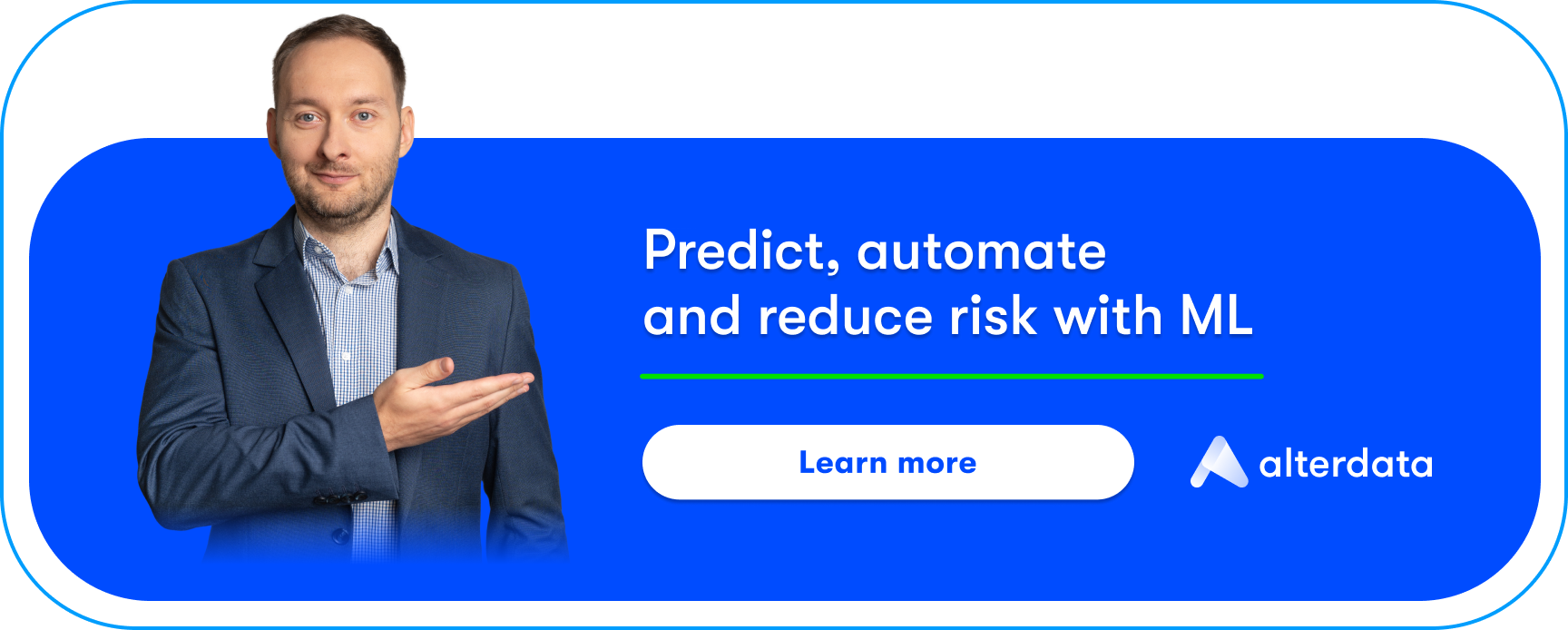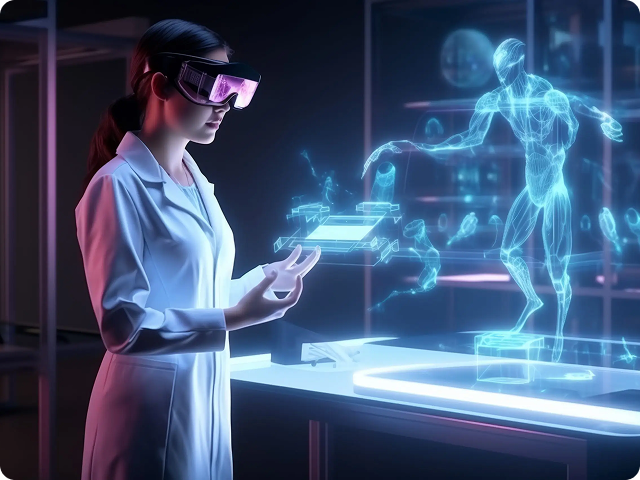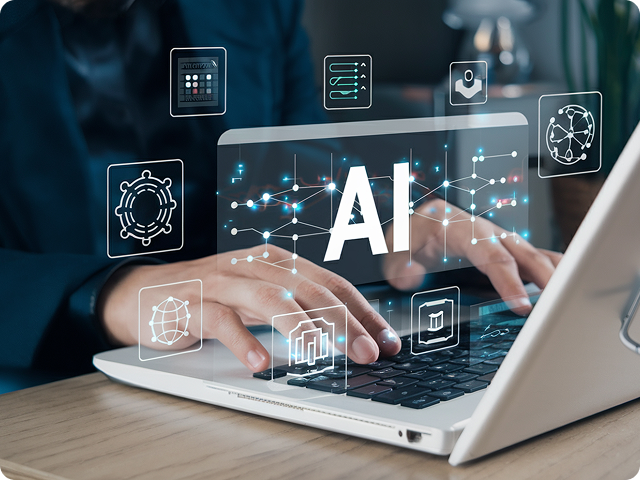Introduction to Artificial Intelligence in Medicine
Healthcare systems worldwide face enormous challenges today: staff overload, rising costs, aging populations, and increasing patient expectations. These are some of the pressing challenges in the healthcare sector. In such conditions, traditional approaches to managing medical facilities and treatment processes are no longer sufficient. The medical sector is becoming a key area where artificial intelligence drives innovation and improves efficiency.
That is why artificial intelligence (AI) and data analytics (Data Science) are becoming the foundation of modern medicine. Innovative AI-based solutions are increasingly implemented in the medical sector, leading to progress in diagnostics, personalized treatment, and the development of new therapies. Healthcare automation, enabled by AI, is emerging as a key trend that streamlines workflows and reduces manual tasks. More and more industry leaders — both in the public and private sectors — invest in technologies that streamline daily work, improve quality of care, and enable data-driven decision-making.
Below are 5 key examples providing a comprehensive overview of AI in healthcare and how it is transforming the industry.

Automation of routine processes and reduction of staff workload
The daily work of medical staff involves a huge number of repetitive, time-consuming tasks — from filling out documentation, scheduling appointments, to processing test results, as well as manual data entry and data entry. Thanks to AI, many of these activities can now be automated, especially administrative processes and administrative tasks, allowing significant operational improvements in medical facilities.
OCR and NLP systems can independently fill out forms or analyze doctors’ notes. Computer programs and robotic process automation (RPA) technology enable automation of document processing and administrative operations, supporting digital data handling and eliminating human errors. These solutions handle information such as medical records and medical history, streamlining workflows and improving accuracy. AI and automation also enhance clinical documentation and electronic health records management, reducing the administrative burden on healthcare professionals. Automation further streamlines processes related to medical procedures, such as billing, coding, and claims processing. Registration bots serve patients 24/7, and intelligent algorithms help prioritize in emergency departments. Implementing these solutions is a key step to improving efficiency and safety in medical institutions. All this means more time for patients and less burnout among staff. Healthcare automation significantly boosts operational efficiency across the healthcare sector.
Better clinical decisions through real-time data analysis
AI in medicine is not only automation — it is also a tool supporting diagnostics and therapy. Advanced AI systems utilizing machine learning play a key role in analyzing medical images such as X-rays, ECGs, CT scans, or MRI analyses, significantly enhancing diagnostic precision. Thanks to analysis of medical data and images, including the use of predictive modeling techniques, diagnostics become faster, more accurate, and more effective, with the potential for AI use in this area continuously growing.
Clinical decision support systems (CDSS) suggest the best treatment paths to doctors based on current patient data and comparison with huge case databases. These systems assist with treatment decisions and help create personalized treatment plans tailored to individual patients. The effect? Faster diagnoses, more accurate therapies, higher treatment effectiveness, and improved patient outcomes.
Early risk detection and prevention of hospitalizations with predictive analytics
One of AI’s greatest advantages is its ability to predict. By analyzing data from patient records, treatment history, test results, risk factors, as well as unstructured data and electronic health data, systems can foresee potential threats — e.g., risk of heart attack, postoperative complications, or chronic disease relapse.
Remote monitoring technologies further enable continuous assessment and early detection of health issues, allowing for timely responses and improved patient outcomes.
This enables earlier intervention and implementation of preventive actions before serious complications occur. This translates not only to patient health but also to real savings for healthcare systems, while helping to protect public health.
Optimization of medical facility management
AI and data science are also management tools. Many hospitals, clinics, and other healthcare facilities use them to optimize schedules, resource management, supply planning, and manage financial data. Algorithms help shorten queues, predict demand for beds or medications, and allocate staff more efficiently.
The result? Lower operating costs, greater work efficiency, and better patient experience—benefiting health systems as a whole.

Competitive advantage and new care models
Telemedicine, medical chatbots, digital assistants, remote health monitoring, and AI-enabled medical devices — these are just a few examples of innovative services made possible by AI. Facilities implementing such solutions gain a competitive edge and build the image of modern, proactive organizations.
Moreover, AI supports the transition from fee-for-service to value-based care model, where quality and efficiency of care are key. This is the future of healthcare — more personalized, patient-centered, and data-driven, with precision medicine enabling tailored treatments and improved outcomes.
The Future of Medicine: how AI will shape Healthcare
The future of medicine is inseparably linked with the further development of artificial intelligence and its growing impact on healthcare. AI in medicine will play an even more important role, supporting healthcare professionals in analyzing medical images such as CT or MRI scans and enabling faster and more precise disease diagnosis. Artificial intelligence is also accelerating drug discovery and advancing medical research by enabling faster data analysis, disease detection, and the identification of new therapeutic targets. Automation of administrative processes will relieve healthcare workers, allowing them to focus on direct patient care and tasks requiring a human approach. Additionally, AI is transforming the design and execution of clinical trials, optimizing patient recruitment, trial simulations, and real-world data analysis to make the process more efficient and personalized.
With the development of new technologies, medical staff will have to adapt to changing work realities, learning to effectively use AI tools in daily clinical practice. Artificial intelligence will not replace doctors but will become their invaluable support in clinical decision-making, therapy planning, and facility process management. As a result, the future of medicine will bring an even higher level of treatment personalization, greater patient safety, and more effective use of healthcare resources. AI opens new opportunities for the medical industry that will soon become standard in the healthcare sector. The World Health Organization plays a crucial role in guiding the global adoption of AI in healthcare, addressing healthcare inequalities and setting international standards. Publications such as the future healthcare journal are essential for disseminating new findings, innovations, and policy frameworks that shape the evolution of artificial intelligence in medicine.






























